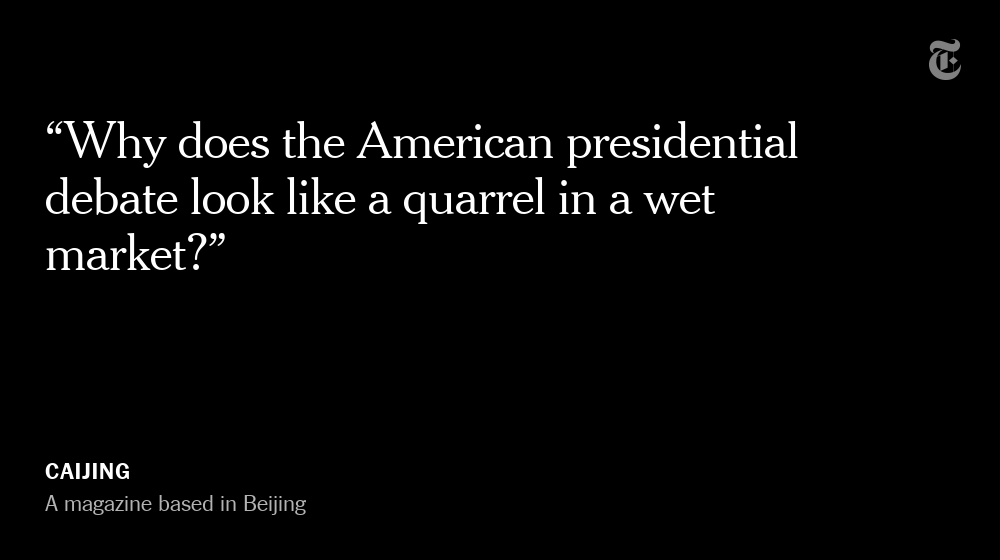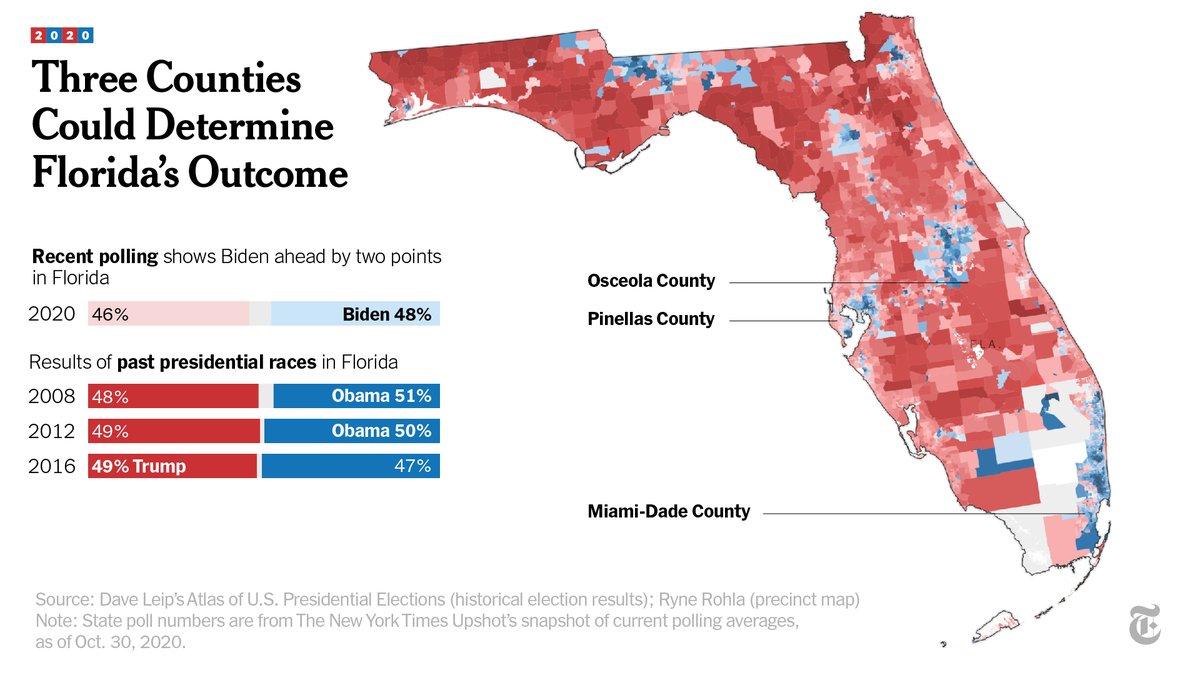
The masks muffled the chants this election season. But often, in the campaign's final days, the theme was clear: It's something like survival, getting to 2021 in one piece, individually and collectively.
Here's what @mattfleg and @heislerphoto saw. nyti.ms/34J9bxv
Here's what @mattfleg and @heislerphoto saw. nyti.ms/34J9bxv
Aside from the date of the election, almost everything is different.
On the campaign trail, on one side, campaign rallies have often been reduced to car-bound honk-fests. On the other, they're at once undimmed and discouraged by public health authorities. nyti.ms/34J9bxv
On the campaign trail, on one side, campaign rallies have often been reduced to car-bound honk-fests. On the other, they're at once undimmed and discouraged by public health authorities. nyti.ms/34J9bxv
The United States is “a house so divided that talk of jailing opponents registers as typical fare,” @mattfleg writes. “A country asking not what can be done, exactly, but whether anything can at this point.”
And yet, an election is happening on Tuesday.
And yet, an election is happening on Tuesday.

2020 has not been a hope-and-change kind of year, @mattfleg writes.
“These last campaign snapshots can double as a sort of rolling testament to national contradiction, rendered often in dizzying succession: the swagger and the nihilism, the faith and the faithlessness.”



“These last campaign snapshots can double as a sort of rolling testament to national contradiction, rendered often in dizzying succession: the swagger and the nihilism, the faith and the faithlessness.”




“It’s almost like picking your first alcohol,” said one 21-year-old first-time voter of the decision he faced at the ballot box. “You know it’s not good for you, you know you’re going to feel bad in the morning. But you’ve still got to make that choice at one point or another.”
The 2020 campaign trail came with novelties generally sorted into one of two categories:
First, the bleak-but-necessary, like insta-thermometers beside the candidate literature at field offices and the introduction of early-voting venues that double as virus testing locations.
First, the bleak-but-necessary, like insta-thermometers beside the candidate literature at field offices and the introduction of early-voting venues that double as virus testing locations.

Others were more disorienting, like socially distanced car rallies, where honks of approval meet stump speeches.
“I kind of like it better,” said Alannah Garrett, 19, hanging out the window of an orange Mustang in Michigan. “Nobody’s stepping on my shoes.”
“I kind of like it better,” said Alannah Garrett, 19, hanging out the window of an orange Mustang in Michigan. “Nobody’s stepping on my shoes.”

For many, though, conversations tended toward fatalism — and a sense that, for all the campaigning, it's about just making it through.
See and read more from the final days of the 2020 presidential campaign, from @heislerphoto and @mattfleg. nyti.ms/34J9bxv
See and read more from the final days of the 2020 presidential campaign, from @heislerphoto and @mattfleg. nyti.ms/34J9bxv
• • •
Missing some Tweet in this thread? You can try to
force a refresh












